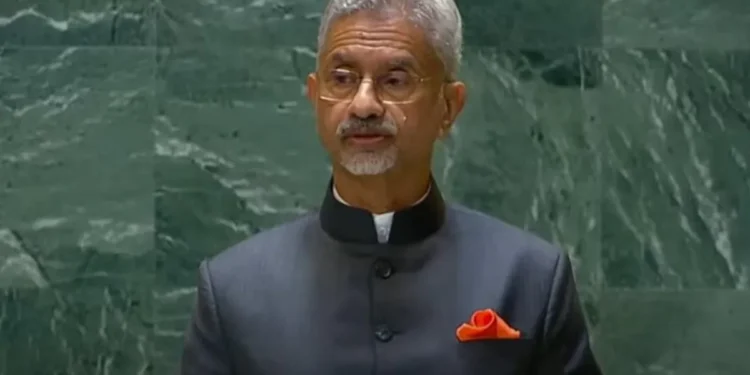Lagatar24 Desk
New Delhi: On the eve of the Indian Army’s 2016 surgical strikes in Pakistan-occupied Kashmir (PoK), External Affairs Minister Subrahmanyam Jaishankar delivered a blunt message in his speech at the United Nations General Assembly (UNGA). He made it clear that each hostile action from Pakistan would be met with a response from India, and this response would not be limited to military means alone.
Jaishankar’s strong remarks follow India’s demand for modifying the 1960 Indus Water Treaty, which has been affected by continuous cross-border terrorism in Jammu and Kashmir, preventing India from fully utilizing its water rights. Despite India’s notice served on August 30, 2024, Pakistan has yet to respond.
Pakistan’s Escalatory Tactics
The real reason behind Pakistan Prime Minister Shehbaz Sharif being countered at the UNGA, from junior diplomats to the top officials like Jaishankar, was Islamabad’s use of multilateral platforms to escalate tensions while presenting a distorted narrative. Pakistan’s UN envoy, Munir Akram, known for his anti-India stance, further amplified this narrative.
Sharif’s attempt to link the Gaza conflict with Kashmir during his UNGA speech was swiftly countered by India. Jaishankar first directed a junior diplomat to dismantle the flawed Gaza-Kashmir analogy and then delivered a decisive blow, emphasizing Pakistan’s reliance on religious radicalization and stating that India’s agenda is to reclaim occupied Kashmir while dismantling Pakistan’s terror infrastructure.
Jaishankar’s Firm Message to Pakistan
In a powerful statement, Jaishankar reiterated that cross-border terrorism by Pakistan must end before any bilateral dialogue could take place. He underscored that India’s approach toward Pakistan has changed, with sharper, more decisive responses now in place. India will no longer remain constrained at multilateral forums when responding to Pakistan’s aggression, as demonstrated by Jaishankar’s words.
He also highlighted that Pakistan’s leaders have consistently used the guise of dialogue while refusing to change their hostile political stance toward India. This “double game” of Pakistan, which has long been recognized, will no longer go unanswered.
Pakistan’s Role in Hezbollah-Related Protests
Jaishankar also addressed Pakistan’s involvement in protests following the killing of Hezbollah leader Hassan Nasrallahby Israel, particularly in Jammu and Kashmir. By calling it ‘Karma,’ Jaishankar pointed to Pakistan’s declining state, emphasizing that Pakistan’s political focus has always been on fostering hatred toward India rather than addressing its internal issues.
Jaishankar’s speech, following the response to Sharif’s statements at the UNGA, underscores the Modi government’s resolve to hold Pakistan accountable for its terrorism and hostility. India is clear-eyed about Pakistan’s tactics, and there will be no illusions in handling the country’s aggression moving forward.







